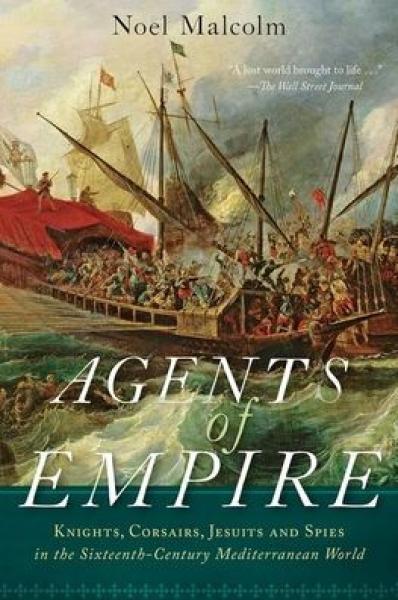Description
In Agents of Empire, Malcolm uses the collective biography of the Brunis to paint a fascinating and intimate picture of Albania at a moment when it represented the frontier between empires, cultures, and religions. The lives of the polylingual, cosmopolitan Brunis shed new light on the interrelations between the Ottoman and Christian worlds, characterized by both conflict and complex interdependence. The result of years of archival detective work, Agents of Empire brings to life a vibrant moment in European and Ottoman history, challenging our assumptions about their supposed differences. Malcolm's book guides us through the exchanges between East and West, Venetians and the Ottomans, and tells a story of worlds colliding with and transforming one another.
"First published in Great Britain by Penguin Random House UK"--Title page verso.
Malcolm is the definitive academic historian: a research professor at All Souls College, Oxford, intimidatingly multilingual, a trained archival detective and a fiercely engaging writer. He knows that the art of biography is to illuminate the entire period in question and can write a rich portrait of a country encompassed within a smartly drawn geopolitical panorama.--The National Interest
Included in Wall Street Journal's The Best Books for History Buffs
Noel Malcolm's astonishing Agents of Empire - a lost world brought to life - focuses on a 50-year period in this epic conflict, from the 1550s to the Long Turkish War (1593-1606). What makes the book astonishing? Mr. Malcolm's account is not written from the point of view of kings, generals and ambassadors. Instead he traces the fortunes of two intermarrying Albanian families, the Brunis and the Brutis... what [Malcolm] has written is an exceptional, enthralling book that places Albania right at the center of the Mediterranean world. -The Wall Street Journal
A book that will serve as an antidote to all crude nationalism, and to many historical stereotypes. It brings the reader back to an era long before the nation-state, when personal loyalties and religious coalitions were perpetually shifting. -The Economist
Dramatic and richly researched, this history views the sixteenth-century Mediterranean through the lens of a single extended Albanian family that wielded influence in both of the region's dominant powers - the Ottoman Empire and the Venetian Republic. -The New Yorker
Agents of Empire is both a work of impeccable and original scholarship and a splendidly readable account of a critical moment in the history of both Eastern and Western Europe, and both Christendom and Islam. -David Abulafia, The Times Literary Supplement
Noel Malcolm's magnificent Agents of Empire uses the intertwined stories of two Albanian families - the Brunis and the Brutis - as a prism through which to view the contacts and the conflicts that made the early modern Mediterranean...It is impossible to read Malcolm's account without a sense of its resonances for today. -The Guardian
[A] masterful account... told with scholarly precision but also with the drive of a well-told story. --The New Criterion
There are very few scholars with Malcolm's linguistic skills and historical vision, which is one of the many reasons Agents of Empire is such an important book. -The Telegraph
This is a magnificent piece of historical recreation and a valuable contribution to the field of Mediterranean studies.-Eric Dursteler, Brigham Young University, H-Net
[An] excellent book. --Journal of Jesuit Studies
Arguably the most accurate and finely shaded view into Europe's early modern past has only recently been published: Noel Malcolm's Agents of Empire: Knights, Corsairs, Jesuits and Spies in the Sixteenth-Century Mediterranean World. Malcolm is the definitive academic historian: a research professor at All Souls College, Oxford, intimidatingly multilingual, a trained archival detective and a fiercely engaging writer. He knows that the art of biography is to illuminate the entire period in question and can write a rich portrait of a country encompassed within a smartly drawn geopolitical panorama. Agents of Empire, which is roughly about the contest for supremacy in the Adriatic and the eastern Mediterranean between Venice and the Ottoman Empire in the late sixteenth century, is a microhistory of a family within an encyclopedic, almost Proustian, vision of early modern Europe. -The National Interest
Product Details
- Oxford University Press, Brand
- Sep 1, 2019 Pub Date:
- 019005672X ISBN-10:
- 9780190056728 ISBN-13:
- 640 Pages
- 8.2 in * 5.4 in * 1.7 in Dimensions:
- 2 lb Weight:




